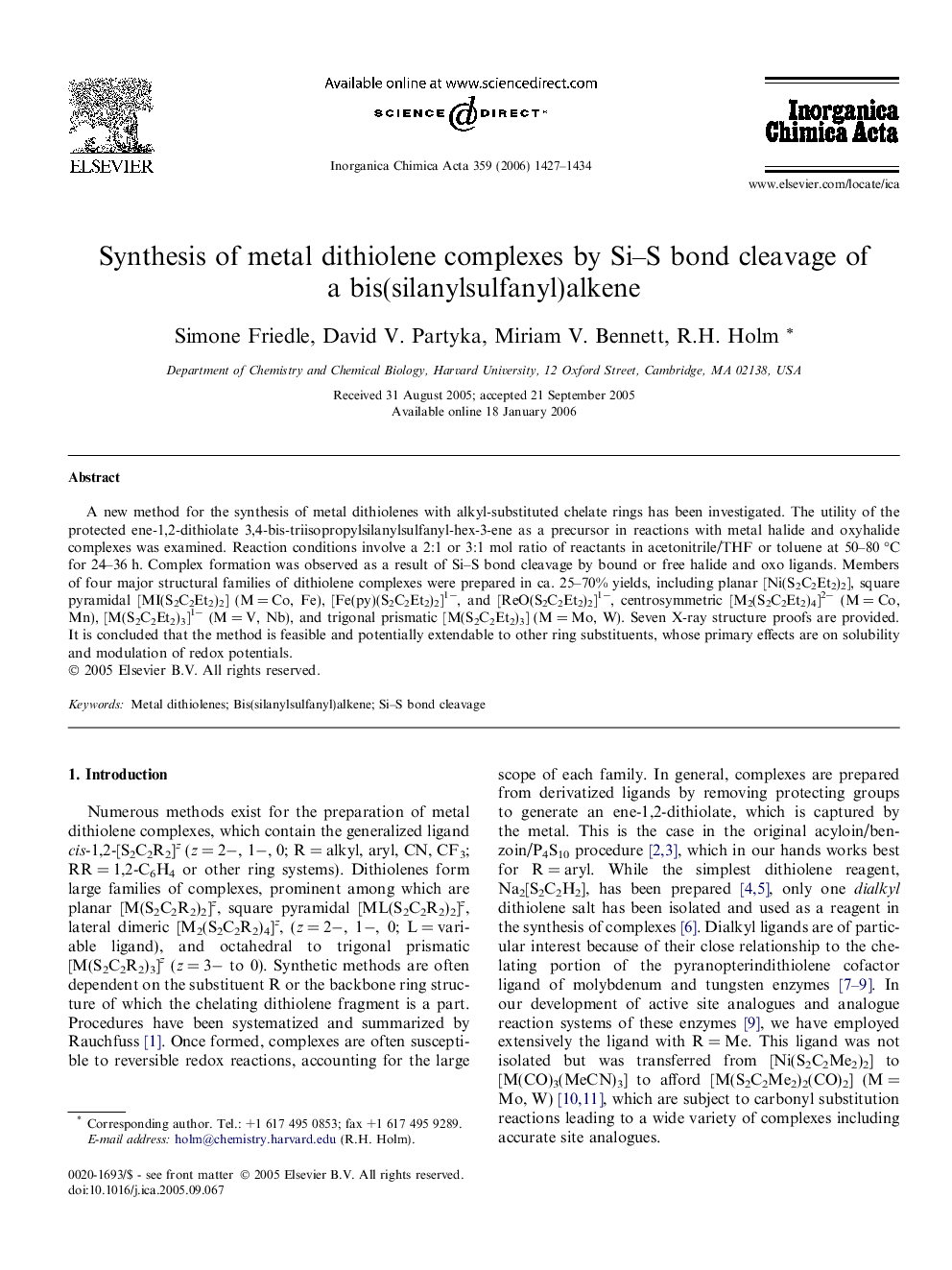| کد مقاله | کد نشریه | سال انتشار | مقاله انگلیسی | نسخه تمام متن |
|---|---|---|---|---|
| 1313076 | 975527 | 2006 | 8 صفحه PDF | دانلود رایگان |

A new method for the synthesis of metal dithiolenes with alkyl-substituted chelate rings has been investigated. The utility of the protected ene-1,2-dithiolate 3,4-bis-triisopropylsilanyl-sulfanyl-hex-3-ene as a precursor in reactions with metal halide and oxyhalide complexes was examined. Reaction conditions involve a 2:1 or 3:1 mol ratio of reactants in acetonitrile/THF or toluene at 50–80 °C for 24–36 h. Complex formation was observed as a result of Si–S bond cleavage by bound or free halide and oxo ligands. Members of four major structural families of dithiolene complexes were prepared in ca. 25–70% yields, including planar [Ni(S2C2Et2)2], square pyramidal [MI(S2C2Et2)2] (M = Co, Fe), [Fe(py)(S2C2Et2)2]1−, and [ReO(S2C2Et2)2]1−, centrosymmetric [M2(S2C2Et2)4]2− (M = Co, Mn), [M(S2C2Et2)3]1− (M = V, Nb), and trigonal prismatic [M(S2C2Et2)3] (M = Mo, W). Seven X-ray structure proofs are provided. It is concluded that the method is feasible and potentially extendable to other ring substituents, whose primary effects are on solubility and modulation of redox potentials.
A new synthesis of metal dithiolene complexes has been developed based on Si–S bond cleavage of the protected ene-1,2-dithiolate 3,4-bis-triisopropylsilanylsulfanyl-hex-3-ene with halide. Coordinated and free metal halides react with the ligand precursor at 55–75 °C to afford complexes in 25–75% yields belonging to four major structural families of metal dithiolenes. Complexes prepared include [Ni(S2C2Et2)2], [MI(S2C2Et2)2] (M = Fe, Co), [ReO(S2C2Et2)2]1−, [M(S2C2Et2)3] (M = Mo, W), and [M(S2C2Et2)3]1− (M = V, Nb).Figure optionsDownload as PowerPoint slide
Journal: Inorganica Chimica Acta - Volume 359, Issue 5, 20 March 2006, Pages 1427–1434